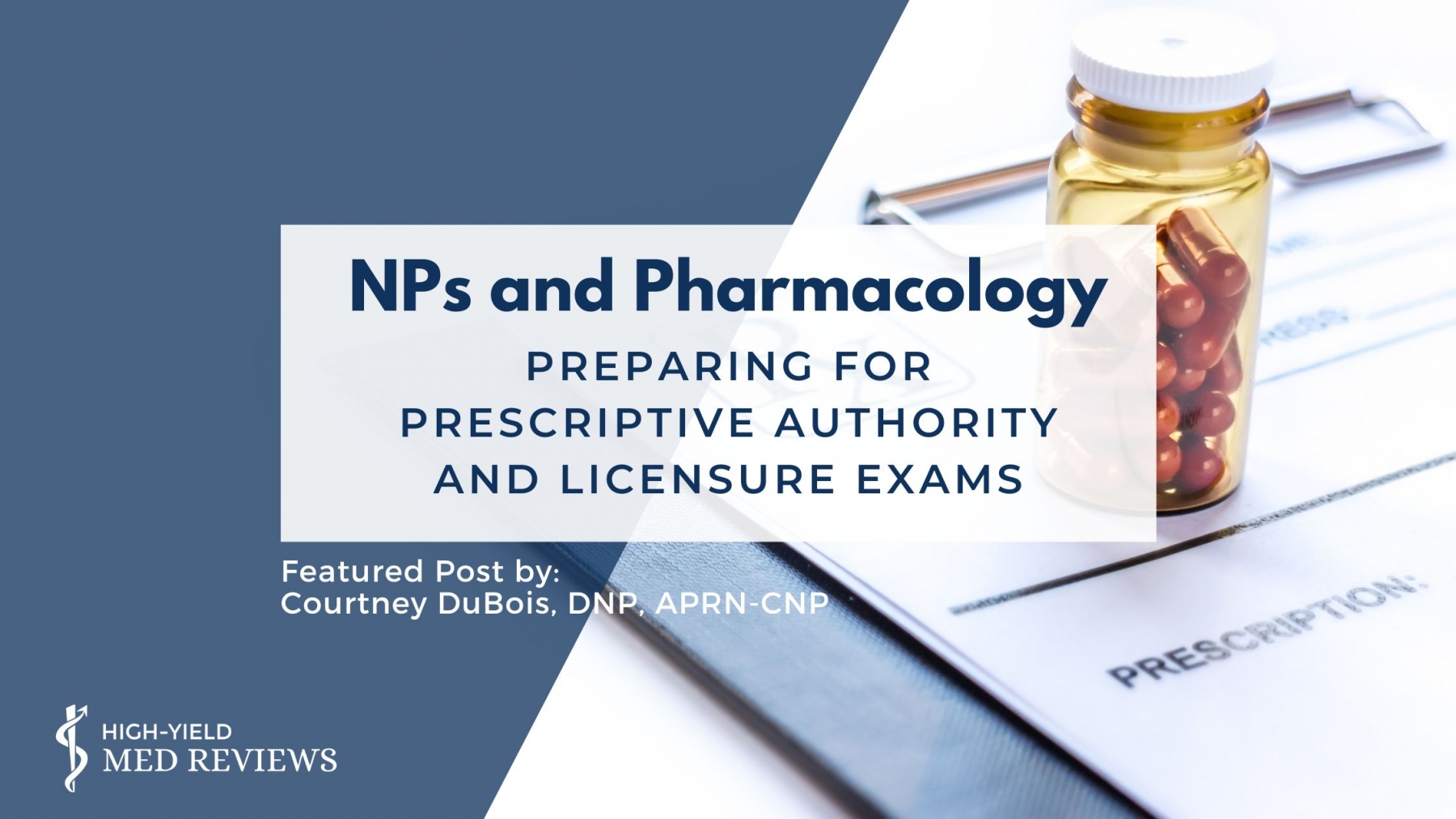Featured: NP Courtney
Featured Post by
Courtney DuBois, DNP, APRN-CNP
One of the most terrifying things when I was a new nurse practitioner was writing a prescription. I know I can't be alone with this. You guys know what I'm talking about, right??
I will NEVER forget the first script I wrote. It was Zofran for one of my HIV patients who was having extreme nausea from their medications. They had tried taking it with food, they had tried taking it right before bed, all the different things, but the nausea prevailed. So we decided to try Zofran 30 minutes before they took their antiretrovirals. Zofran isn't a drug with severe adverse effects, and it doesn't require careful monitoring like some other medications, but there are always potential side effects and drug interactions we as providers need to be aware of. I remember the anxiety surrounding sending that very first script - I must have checked it for accuracy at least 10 times before I hit the button to e-scribe it.
Arguably the most significant change in the transition in practice from nurse to nurse practitioner can be the most intimidating - prescriptive authority.
Having the power to prescribe is a big responsibility. All healthcare providers, including nurse practitioners, must ensure that they have an excellent pharmacology background and have confidence in not only the mechanism of the drugs, but also the risks and potential interactions that come with any medication. Additionally, we must ensure that the drug we chose is the safest and best option for our patient.

When I think back to my NP school curriculum, I remember that advanced pharmacology occurs early in the program, before we start any of our clinical coursework and experiences. This ensures that when we start learning clinical management, we have a strong pharmacology foundation. But by the time we graduate and are ready to see our first patient and prescribe with our license, those pharmacology foundations may be more of a distant memory. We might remember drug dosing and indications, but the rest of pharmacology - such as the mechanism of action (MOA), adverse events (AEs), drug interactions (DIs) - may be a bit hazy. Knowledge of MOAs, AE and DIs is vital when treating patients, particularly as patient care and management becomes more complex.

Arguably the most significant change in the transition in practice from nurse to nurse practitioner can be the most intimidating - prescriptive authority. So what does one do if they do not feel 100% prepared for the responsibility and knowledge that national certification and prescriptive authority requires? My recommendation: take a pharmacology-specific review course or utilize a software program that reviews pharmacology and offers a therapeutic curriculum! Essentially, these programs are designed to lay the pharmacology foundation and then explore the therapeutic application with a pharmacology focus. One such example is High-Yield Med Reviews pharmacology and therapeutics course for nurse practitioners. This course is founded on the notion that NP students will be better prepared for both licensure exams and clinical practice if their understanding of drugs is integrated across traditional "Advanced Pharmacology" into the application through therapeutics.
Courses such as these are appropriate for both the new graduate looking to prepare for boards as well as a newly licensed nurse practitioner who is looking to shore up their pharmacology knowledge as a new prescriber.

I love the resources that High-Yield Med Reviews provides regardless of where you are on your NP journey. For example, High Yield Med Reviews provides learners with a 3000-question Q-Bank and a pharmacology and therapeutics curriculum to create a firm foundation in pharmacology. The Q-Bank allows you to put your knowledge into practice through test questions. This is especially helpful for the new-graduate NP who is trying to prepare for the national certification examination, as the NP Q-Bank generates a report that analyzes knowledge deficiencies. This report can then help the learner customize their study plan by tracking the areas of strength and weakness across all the domains.
There is nothing more stressful than preparing for a board exam that determines your professional future. This is why I choose High-Yield Med Reviews. Set yourself up for success, right from the start!
Courtney DuBois, DNP, APRN-CNP
Courtney DuBois, DNP, APRN-CNP is a doctorally-prepared, Board Certified Adult-Gerontology Primary Care Nurse Practitioner in Columbus, OH. With over 11 years as a nursing professional, she serves as a mentor, keynote speaker, advocate for young women with breast cancer, educator, and social media leader.
You may also like:
NP Student Magazine: The NP and Prescriptive Authority
What to Expect: The New AACN Essentials Roadmap
High-Yield Products:
For Individuals: Pharmacology and Therapeutics Review for NPs
For Individuals: Pharmacology and Therapeutics Review for PAs
For Institutions: Advanced Pharmacology and Clinical Rotation Support for NP Programs



